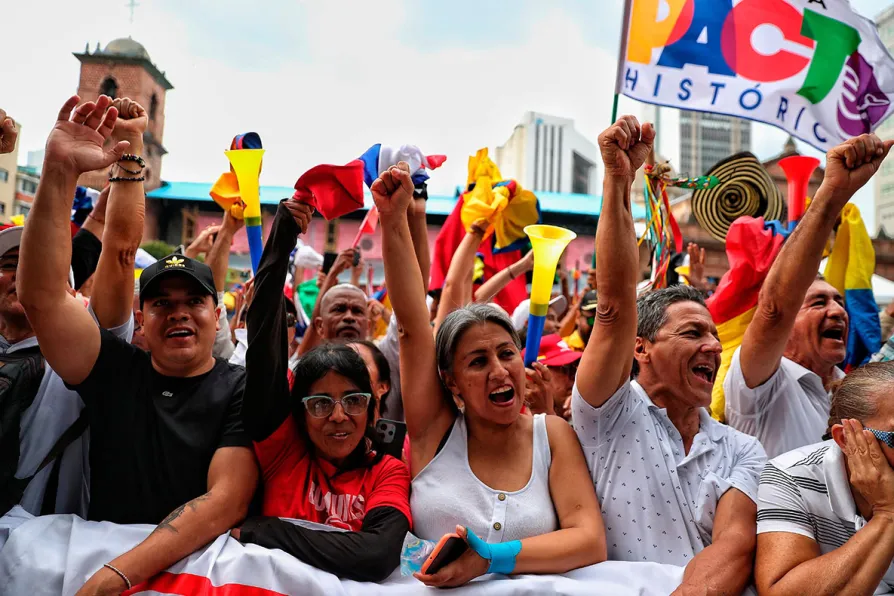
 People participate in a rally in support of Colombian President Gustavo Petro's intention to call a referendum on labor reform, in Cali, Colombia, June 11, 2025
People participate in a rally in support of Colombian President Gustavo Petro's intention to call a referendum on labor reform, in Cali, Colombia, June 11, 2025
COLOMBIA’S President Gustavo Petro signed a decree forcing through a referendum on enhancing workers’ rights on Wednesday – including over whether workdays should be limited to eight hours.
The decree, which bypassed the Senate, fulfilled Mr Petro’s threat to Congress to put his labour system overhaul before voters should senators fail to approve the 12-question referendum themselves.
He issued the measure in a tense political climate following the shooting on Saturday of opposition senator and presidential candidate Miguel Uribe Turbay at a public event.
The referendum has become the crux of long-running tensions between the executive and legislative branches.
After Congress rejected Mr Petro’s employment reforms twice, most recently in March, he sent politicians a 12-question referendum proposal on May 1. Colombian law requires that the Senate rule on the advisability of referendums.
The legislative body voted 49-47 against the measure two weeks later, prompting him to accuse politicians of fraud.
Mr Petro, Colombia’s first left-wing president, has accused Congress of working against the interest of workers and has called for people to demonstrate across the country.
The referendum’s questions include whether workers should receive double pay for holiday work, whether daytime workdays should end at 6pm and whether open-ended contracts should be offered to workers to prioritise job stability.
The disagreements between Mr Petro and Congress date back to the start of his term in 2022, but they have heightened as he seeks to consolidate his legacy ahead of next year’s legislative and presidential elections.
Mr Uribe remains in critical condition following the shooting, which took place in broad daylight on Saturday during a political rally in the capital, Bogota.
Authorities have not ruled out the possibility that it was a targeted attack on the opposition.
They are also considering whether it was an attempt to destabilise the current government, or retaliation by armed groups.
In anticipation of court challenges, Mr Petro said on Wednesday that his government will send the decree to Colombia’s Constitutional Court for review. At the same time, the Council of State is considering a lawsuit seeking to annul the Senate’s vote.










